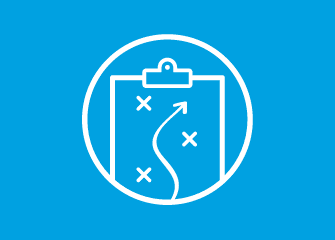3 companies that had huge success with gamification
Gamification has now become a pretty established facet of the world of engagement and
incentivization. For those who haven’t quite got their heads around the concept, we thought
we’d present a few highly successful cases of game mechanics being applied to non-game
environments. We hope to show just how effective it is at changing the way people see a
brand.
Case 1 – Starbucks Coffee
Starbucks’s philosophy is personalized customer service. This can be seen in the way that
each cup is brought to customers with their name on it. The coffee house environment offers
customers a place to calmly enjoy their drinks.
As part of this strategic model, the institution created My Starbucks Reward.
Participants register using a Starbucks Card and accumulate stars every time they buy a
Starbucks product. The game is divided into levels which depend on the customer’s pre-
existing loyalty level and quantity of purchases, meaning that those that frequent the stores
more are able to rise up the score system more rapidly. Some of the benefits include drinks such as
birthday presents, extra cake, and specially designed products.
In the first trimester of 2015, My Starbucks Reward reached 10.4 million users in the United
States alone, with a 28% increase over the year.
Case 2 – Jay-Z
In 2010, the rapper Jay-Z published an autobiography called ‘Decoded’. He opted for a
unique launch strategy…..He gamified it.
The strategy worked as follows: pages of the book were placed in various strategic and
sentimentally important locations, such as Jay Z’s favorite restaurant, his favorite club, etc.
Not just places, but belongings such as clothes, cars, and even outdoor spaces were used. Fans
who wished to get involved, would ‘check in’ at these locations by taking a photo.
The scheme resulted in immense online engagement. The rapper’s fans searched incessantly
around the streets for pages of the book that were yet to be found and social networks were
ablaze with excitement.
You must be wondering what the motive behind all of this was. The reason the game stirred
so much interest from fans was that the gamer who found the highest number of pages would
win a “golden ticket” providing free entry to all of Jay-Z’s shows until the end of his career.
Lots of fans even contracted teams in their frenzy to finish in first place.
The result? The book launch and dissemination were a roaring success – everyone who was
anyone knew about the book, massively increasing awareness about the Jay-Z brand.
Case 3 – Bike de Firma
The app ‘Bike de Firma’ [Firm Bike] was created by the lab ‘Señores’ [Men] in Brazil, to
help firms incentivize their employees and collaborators to commute to work by bike.
Participants' final objective is to reach 1000km, but each 100km traveled provides
employees with benefits that vary from book vouchers to tastings at fairs. Companies receive
bicycles with a tracker connected to a mobile app that sends real-time information to
collaborator profiles on the central site, where a history with data on each participant is
stored.
Bike de Firm is an example of gamification’s power. It brings a whole host of benefits to
contracting companies, such as economizing on the cost of transport, guaranteeing
engagement and quality in the work environment and increasing the quality of life of
collaborators.
As you can see, there is a wide range of success stories that attest to the powerful impact of
gamification – a strategy being adopted more and more by savvy companies.




